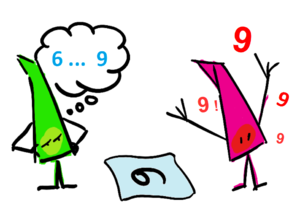| Revision as of 12:23, 14 July 2022 editCzello (talk | contribs)Extended confirmed users, Page movers, Pending changes reviewers41,383 edits See also← Previous edit | Latest revision as of 08:53, 1 March 2023 edit undoRadioactiveBoulevardier (talk | contribs)Extended confirmed users21,916 edits add shortdescTags: Mobile edit Mobile web edit | ||
| Line 1: | Line 1: | ||
| {{short description|Essay on editing Misplaced Pages}} | |||
| {{redirect|WP:WFE|text=You might be looking for ]}} | {{redirect|WP:WFE|text=You might be looking for ]}} | ||
| {{redirect|WP:ENEMY|text=You might be looking for the guideline ], or the essay ]}} | {{redirect|WP:ENEMY|text=You might be looking for the guideline ], or the essay ]}} | ||
Latest revision as of 08:53, 1 March 2023
Essay on editing Misplaced Pages "WP:WFE" redirects here. You might be looking for Help:Wikimedia Foundation error. "WP:ENEMY" redirects here. You might be looking for the guideline WP:User pages#POLEMIC, or the essay User:Bahamut0013/editors are not the enemy. Essay on editing Misplaced Pages| This is an essay. It contains the advice or opinions of one or more Misplaced Pages contributors. This page is not an encyclopedia article, nor is it one of Misplaced Pages's policies or guidelines, as it has not been thoroughly vetted by the community. Some essays represent widespread norms; others only represent minority viewpoints. | Shortcuts |
| This page in a nutshell: Represent all point of views neutrally and with due weight, even if you disagree with the view. |

Writing for the opponent, also known as steelmanning, is the process of explaining another person's point of view as clearly and fairly as you can, even if you strongly disagree with it, and also giving it proper weight in the article relative to its significance. The concept is similar to that of playing the devil's advocate. The point is to satisfy the proponents of a perspective that you understand their arguments and are willing to present them in a disinterested way.
It is a great way to end an argument in real life, and it can often halt an edit war in an instant. It can also result in you having a greater understanding of the opponent's position, and ideally not viewing them as an "enemy" or even "opponent" any longer, but rather just an individual with different assumptions about a given topic.
Writing for the opponent is also the process of editing an article from the perspective of a viewpoint opposed to your own. By doing so, you can sharpen and apply your neutral point of view editing skills.
For example, it is possible to explain Nikita Khrushchev's view of the USA, without either agreeing or disagreeing with it. Likewise, it is possible to explain why certain individuals did terrible things, without either endorsing them or adding one's own proofs that they were evil or wrong. The expression therefore means the ability to communicate another viewpoint without any elaboration.
Note that writing for the opponent does not necessarily mean one believes the opposite of an opponent's point of view. The writer may be unsure what position they want to take, or simply have no opinion on the matter. What matters is that you try to "walk a mile in their shoes" and, on this occasion, not judge them.
Writing for the opponent contributes to the neutral point of view of Misplaced Pages. Wikipedians need not "sacrifice" their own viewpoints but simply acknowledge that a viewpoint other than their own may be possible:
- It is the mark of good Misplaced Pages editors to be able to understand and present various points of view, including those they find distasteful.
Editors must either create edits for the opposing point of view themselves, or at least allow it. Misplaced Pages's NPOV policy must not be misused so it becomes synonymous with revisionism, censorship, whitewashing, or political correctness. Editors must present both sides of any controversy. To leave out one side amounts to promoting the other side's point of view.